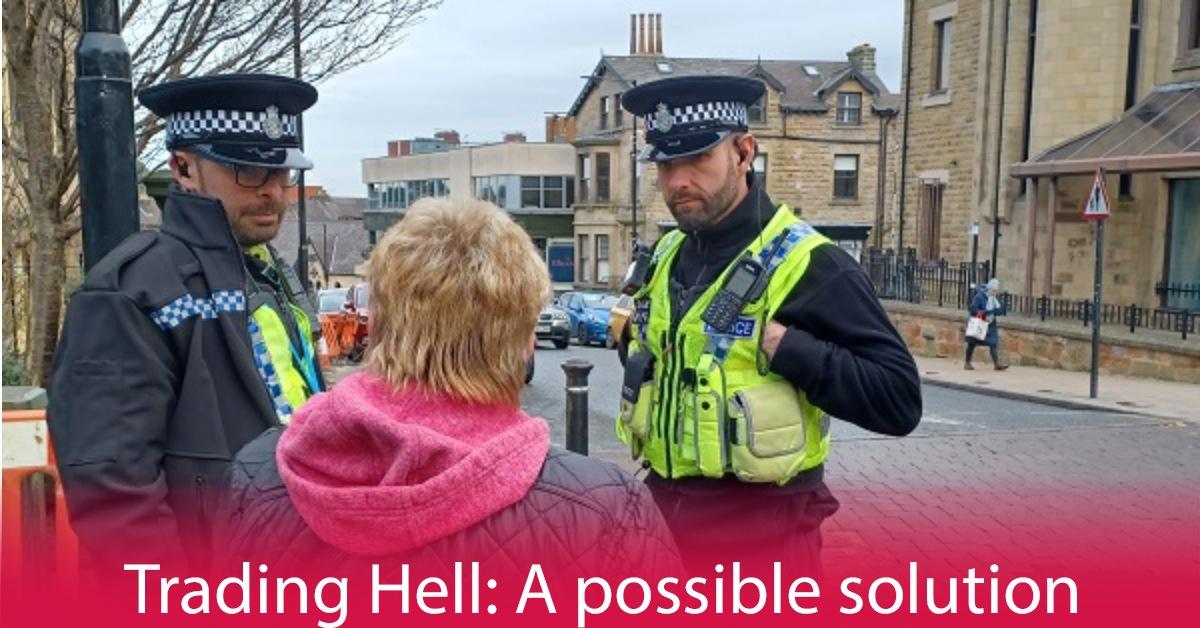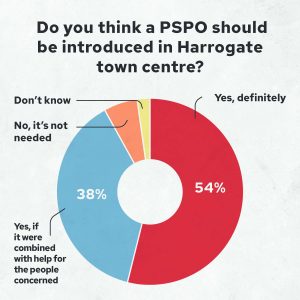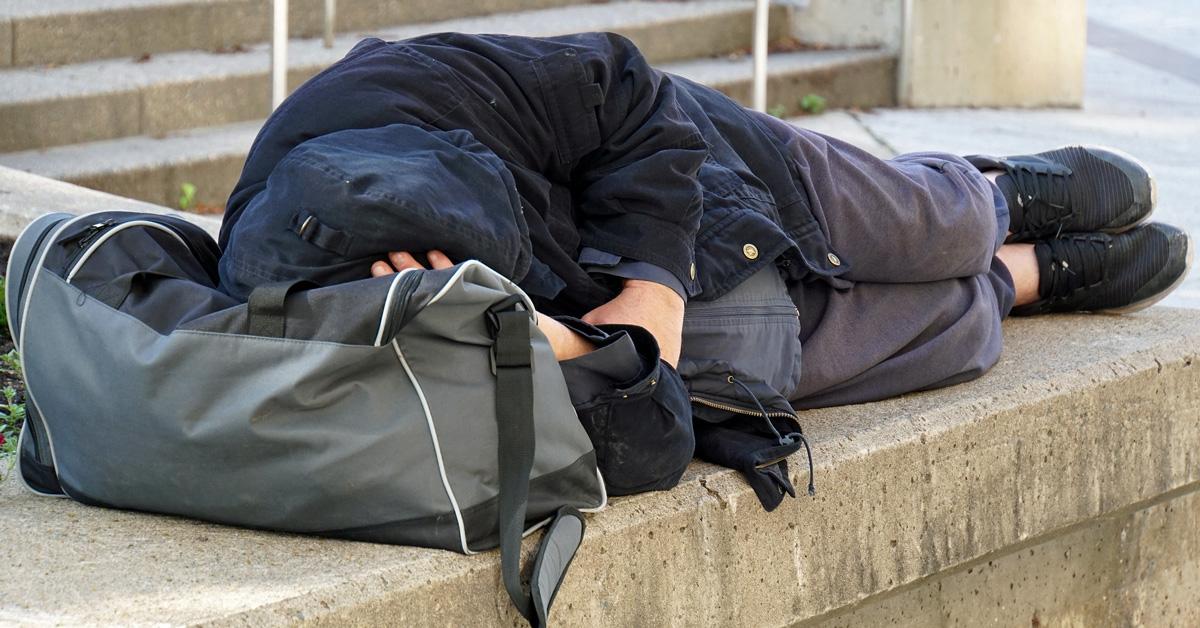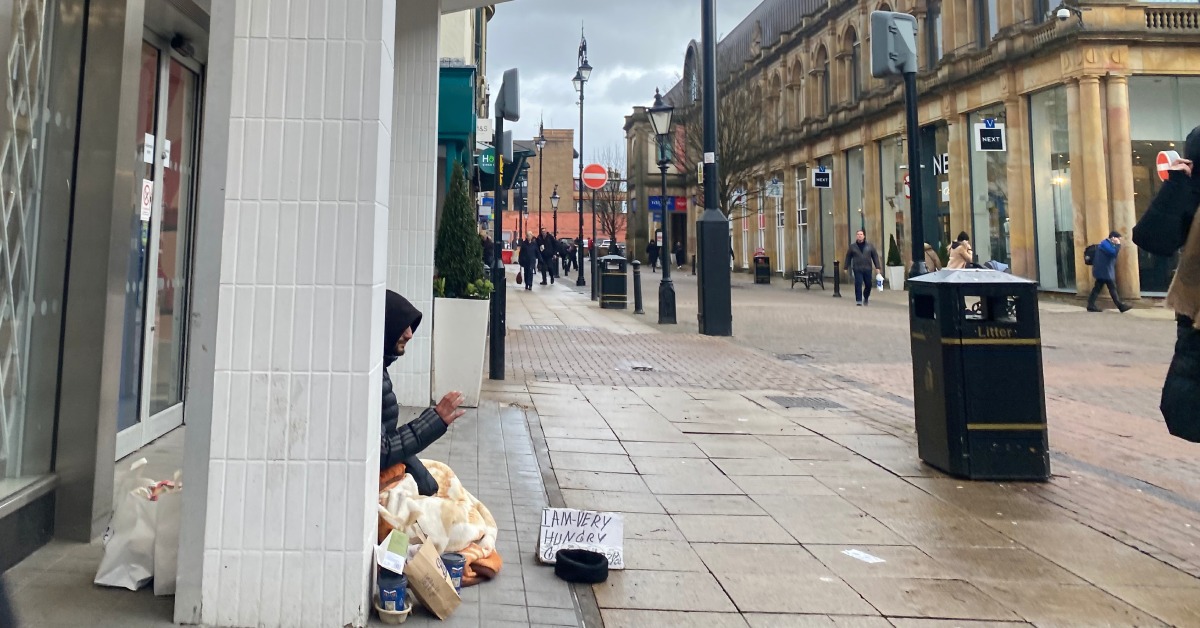Subscribe to trusted local news
In a time of both misinformation and too much information, quality journalism is more crucial than ever. By subscribing, you can help us get the story right.
- Subscription costs less than £1 a week with an annual plan.
Already a subscriber? Log in here.
22
Mar 2024
Trading Hell: 'Report crime so we can cut crime', says BID manager

This is the fifth in our Trading Hell series of features investigating anti-social behaviour and crime in Harrogate town centre.
All this week, our Trading Hell series of features has been putting the problems faced by central Harrogate businesses under the microscope.
We’ve found out what town-centre traders feel about anti-social behaviour, shoplifting and threats to staff through our unprecedented survey.
We’ve taken a deep dive into the official data to find out what the stats have to say about crime levels in the heart of our town.
We’ve heard from Harrogate Homeless Project about the limits constraining the charity sector’s response to rough sleeping and street drinking.
And we’ve heard from a senior police officer about what North Yorkshire Police are doing to tackle crime and anti-social behaviour and to restore public confidence.
But could there be a better way? Matthew Chapman certainly thinks so. He’s manager of Harrogate BID (business improvement district), and for the last couple of years he’s been leading the charge for the introduction of a Public Spaces Protection Order (PSPO). He told the Stray Ferret:
Introduced in 2014, PSPOs prohibit specified behaviours and offences from precisely delineated areas. Harrogate introduced one in August 2016 and extended it a year later for another three years. It was tailored to clamp down on street drinking inside the railway and bus stations, Victoria Shopping Centre, and the Victoria and Jubilee multi-storey car-parks. Enforcement officers had the power to ask people to stop drinking in a public place and ‘surrender’ their alcohol. Refusal to hand it over could result in a fixed penalty notice of up to £100.
But that order expired in 2020 and the pandemic lockdown meant there was no need to renew it, so there hasn’t been one in place for the past four years.
A new one is long overdue, according to Matthew Chapman, and an overwhelming majority of central Harrogate businesses appear to agree. Our Trading Hell survey found that 92% of town-centre traders support the introduction of a PSPO.
Lifestyle choice?
Who is to blame for all the problems that traders face – including anti-social behaviour, street drinking, persistent begging and shoplifting – is a simple question with a complex answer. According to Matthew Chapman, there are several different kinds of offender, but most of the problems are caused by two groups: “homegrown” street drinkers and gangs from out of town.

Photo: Dennis Jarvis/Flickr.
He said:
Does this mean he agrees with former Home Secretary Suella Braverman that rough sleeping is a “lifestyle choice”? He said:
People-trafficking gangs
The other main group of people causing problems for town-centre businesses is driven by money rather than personal problems. Some come to beg, others to shoplift, and they are far more flexible in their approach, according to Mr Chapman.
He said:
The bands of professional beggars follow the crowds, he said, often moving seasonally or from event to event, and can make a lot of money:

As reported in yesterday’s Trading Hell instalment, we put these assertions to Chief Inspector Simon Williamson of North Yorkshire Police, who told us:
Told of Ch Insp Williamson’s response, Mr Chapman said:
'Reporting crime is vital'
Whatever the problems are in Harrogate town centre, and no matter who is causing them, many are hoping that Project Spotlight, the initiative launched last week to step up police patrols in the town centre, will help tackle them.
Mr Chapman also has high hopes for the new town centre support officer that Harrogate BID is currently recruiting. Their job will be to support the police, council and charities, acting as a “middleman” to gather evidence and share information.
They will also be useful in making sure that all crime is reported – a vital measure if a PSPO is to be introduced. In order for North Yorkshire Council to be able to apply for a PSPO, national guidelines dictate that crime figures must demonstrate its necessity. But that’s a level that central Harrogate does not yet reach – officially, at least.
Mr Chapman said:
Case study: How a PSPO helped cut crime and anti-social behaviour in Lincoln
Lincoln has sought to use PSPOs to tackle problems similar to those experienced in Harrogate town centre.
City of Lincoln Council has used the powers over the last nine years to prohibit various kinds of anti-social behaviour, which council leaders, police and other agencies feel have plagued the city.
They range from banning street drinking in the city centre, to prohibiting substance abuse and “loitering” in local car parks.

Lincoln city centre. Photo: Lincolnian (Brian)/Flickr.
The city’s first ever PSPO was introduced in 2015. It banned the possession and consumption of “legal highs” and alcohol within a defined area of the city centre, and allowed police and council staff to either force people to hand over those substances and move on, or issue a fine if they refused to do so. The order has been renewed every three years and is due for review this year.
A separate PSPO covering three city-centre multi-storey car-parks was first enforced in October 2020. It banned drinking, drug-taking and “congregating in groups of two or more people”, as well as public urination, smoking and any activity likely to cause harassment, alarm or distress to any other person.
Figures provided by the council at a meeting to discuss its extension last September show that the PSPO had its desired effect. Incidents of drug-taking dropped from 107 in the three years prior to the order to 35 over the three years the order was in force.
Over the same periods, public order offences dropped only slightly, from 189 to 150. Nevertheless, council officials felt this modest drop justified extending the PSPO for another three years.
Read more:
- Trading Hell: A Stray Ferret investigation reveals how Harrogate shop workers routinely face threats, shoplifting and anti-social behaviour
- Trading Hell: Shocking rise in shoplifting in Harrogate town centre
- Trading Hell: ‘We cannot force people to do something’, says homeless charity
- Trading Hell: 'We can't arrest our way out of it', says police chief
0